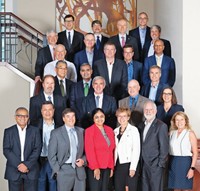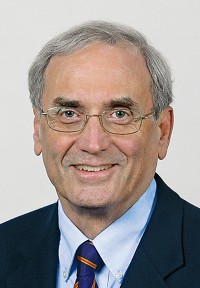Advertisement
Grab your lab coat. Let's get started
Welcome!
Welcome!
Create an account below to get 6 C&EN articles per month, receive newsletters and more - all free.
It seems this is your first time logging in online. Please enter the following information to continue.
As an ACS member you automatically get access to this site. All we need is few more details to create your reading experience.
Not you? Sign in with a different account.
Not you? Sign in with a different account.
ERROR 1
ERROR 1
ERROR 2
ERROR 2
ERROR 2
ERROR 2
ERROR 2
Password and Confirm password must match.
If you have an ACS member number, please enter it here so we can link this account to your membership. (optional)
ERROR 2
ACS values your privacy. By submitting your information, you are gaining access to C&EN and subscribing to our weekly newsletter. We use the information you provide to make your reading experience better, and we will never sell your data to third party members.
Environment
ACS GCI Pharmaceutical Roundtable Celebrates 10 Years Of Green Chemistry Innovation
by Kent J. Voorhees, Chair, ACS Green Chemistry Institute Governing Board
July 6, 2015
| A version of this story appeared in
Volume 93, Issue 27
The American Chemical Society Green Chemistry Institute (ACS GCI) embarked on an experiment in 2005 with the idea that the pharmaceutical industry was uniquely positioned to contribute significantly to making drug syntheses greener. In response to an invitation from the institute’s then-director, Paul T. Anastas, and ACS GCI board member Berkeley W. (Buzz) Cue, five companies began convening as a roundtable.
The most immediate question at that time was whether they could successfully collaborate on a noncompetitive basis and find sufficient value in implementing greener chemistry and engineering approaches for the production of pharmaceutical products. A decade later, the pharmaceutical roundtable is a thriving, leading, collaborative, and innovative think tank of scientists and engineers who continue to seek new ways to make the pharmaceutical industry more sustainable on every level possible.
When founding member company representatives first came together, they brainstormed ideas for addressing critical issues the pharmaceutical industry faces when making its products. In an industry with one of the highest waste-to-product ratios (25–100 kg of waste per kilogram of product, according to Suresh Ameta and Rakshit Ameta’s 2013 book, “Green Chemistry: Fundamentals and Applications”), the roundtable members decided their first initiative would be to benchmark their companies’ performance around a leading indicator of process efficiency, which they named “process mass intensity.” To ease this process of benchmarking and also to standardize the approach, the roundtable members developed a process mass intensity calculator.
The creation of this and other tools, such as a solvent guide and more recently a series of reagent guides, empowers scientists and engineers to better understand the environmental impact of their chemistry, make better choices about how to undertake drug synthesis, and improve the overall performance of their process chemistry.
As the roundtable matured, its members began to think about how they might advance research in key areas of interest to the industry, such as identifying and developing greener solvents, advancing catalysis using Earth-abundant metals, and seeking to develop greener synthetic chemistry protocols through the $1.58 million in grants the roundtable has awarded.
In addition, the roundtable routinely publishes a literature review in the ACS journal Organic Process Research & Development that highlights the latest innovations in green chemistry and engineering process R&D. It hosts a variety of symposia at national meetings and conferences around the world. And it has also established a subcommittee to investigate green chemistry opportunities in large-molecule synthesis.
Now, after 10 years of substantial contribution, the ACS GCI Pharmaceutical Roundtable enjoys an ever-growing reputation as a leader in green chemistry and engineering.
As chair of the ACS GCI Governing Board and longtime member of the ACS Board of Directors, I’ve had the opportunity to see the roundtable concept become a successful model of how industrial engagement can benefit scientists across the global chemistry enterprise. With the goal of replicating the success of the pharmaceutical roundtable, ACS GCI has established three additional industrial roundtables: one for industries that produce formulated products, one for chemical manufacturers, and one for companies that span the hydraulic fracturing value chain.
ACS President Diane Grob Schmidt says, “The ACS Green Chemistry Institute Roundtables provide unique value for stakeholders to collaborate and innovate on noncompetitive issues. I applaud their success and look forward to similar models throughout ACS to benefit other disciplines, industries, and members.”
ACS provides a professional home not only for chemists and chemical engineers but also for other scientists and for nonscientists with an interest in promoting the transforming power of chemistry to change people’s lives. These roundtables provide a forum to collaborate and generate forward-thinking ideas to reimagine chemistry for a more sustainable future.
More information on the ACS GCI Pharmaceutical Roundtable can be found at www.acs.org/gcipharmaroundtable.
Views expressed on this page are those of the author and not necessarily those of ACS.






Join the conversation
Contact the reporter
Submit a Letter to the Editor for publication
Engage with us on Twitter